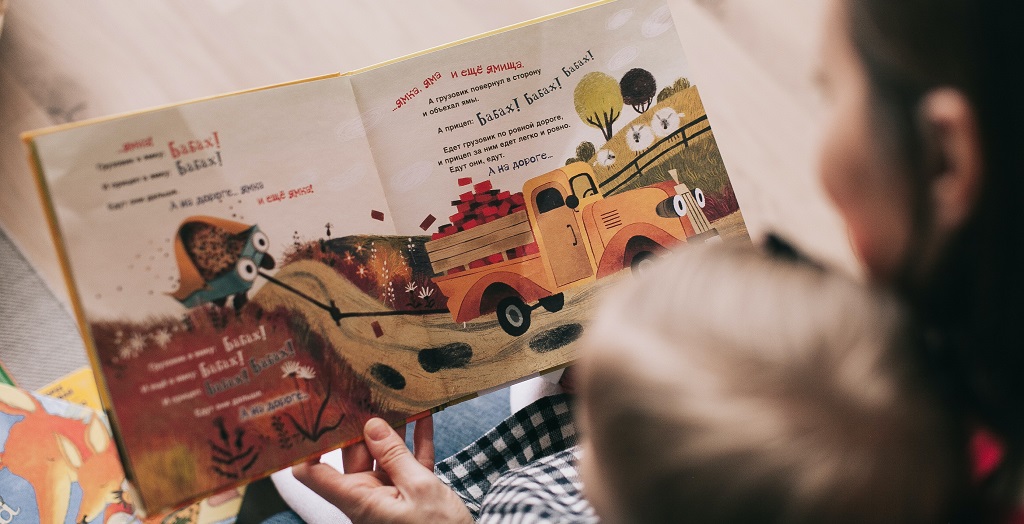Preparing yourself with commonly asked babysitter interview questions can help you to secure the babysitter role you desire.
It can be challenging to find an ideal babysitter nowadays. That’s why parents (your prospective employer) set up an interview to assess the babysitter’s skills and experience. During an interview, they will ask questions to determine if the babysitter meets their expectation and needs.

They are looking for a babysitter who is experienced and can be trusted. It is also essential that the babysitter has a great personality and is a good match for the family.
In this article, you’ll explore common babysitter interview questions and effective preparation strategies. We’ll share techniques for answering competency-based questions, and introduce you to the HIGH5 strengths assessment. This powerful tool can help you identify your unique strengths, giving you a significant advantage in interviews and your babysitting career. By understanding your innate talents, you’ll be better equipped to articulate your value to potential employers and excel in your role as a babysitter.
What are employers and hiring managers looking for when interviewing people for a babysitter?
Babysitters juggle a diverse range of responsibilities, from managing children’s emotions to handling daily care tasks. To excel in these areas, it’s crucial to understand your unique strengths. The HIGH5 strengths assessment can be an invaluable tool in this process. By identifying your top strengths, you can highlight how these align with key babysitting skills during interviews. For instance, if you discover that adaptability is one of your strengths, you can emphasize how this helps you handle unexpected situations or changes in children’s moods effectively. This self-awareness not only impresses potential employers but also guides your professional development in babysitting.
Skills such as safety and first aid, problem-solving, responsibility, reliability, and patience are crucial for a babysitter to carry out their duties successfully.
Babysitter certification
Certification programs are an excellent method to hone your emergency and safety skills while babysitting. Babysitting certification classes can be taken online or physically through reputable companies such as the Red Cross.
This specialized training will help you become a qualified and competent babysitter. You will be better equipped with the necessary skills to handle unforeseen events that may arise.
Furthermore, equipping you with the certifications allows you to charge a higher rate with parents for your services.
Safety & first aid procedures
Although engaging and taking care of kids is a critical element of babysitting, the primary job of babysitters is to keep them healthy and safe. That is why having safety and first aid skills are essential for this profession.
Our house is a dangerous place, especially for newborns and toddlers who have just started learning to walk and are full of curiosity. The house is filled with choking risks and sharp objects everywhere. Hence, they need our supervision constantly to ensure they are safe from these hazards.
When babysitting, you must always be conscious of your surroundings and be on the lookout for any potential hazards to the children.
CPR and First Aid courses are an example of courses that are essential to have if you aspire to be a professional babysitter.
Although the likelihood of significant injury or sickness happening to the children you are babysitting is low, accidents may still occur. Hence, arming yourself with the essential knowledge and skill sets can be the difference between life and death in those situations.
Children tend to injure themselves frequently, so knowing how to handle these situations is critical. You need basic first aid skills and knowledge to treat scratches and bruises.
That’s why most of the time, parents see having first aid certification as a non-negotiable requirement.
Problem-solving skills
As a babysitter, your problem-solving skills are constantly put to the test. From coaxing a picky eater to handling emergencies, you need to think on your feet. This is where understanding your strengths through the HIGH5 assessment can be a game-changer. For example, if ‘Strategic Thinking’ is one of your top strengths, you can leverage this to anticipate potential issues and plan ahead. Or if ‘Creativity’ is your forte, you can use it to come up with innovative solutions to everyday challenges. By taking the HIGH5 test, you’ll gain insights into your natural problem-solving approach, allowing you to articulate these skills confidently in interviews and apply them effectively on the job.
Irrespective of the severity or urgency of an issue, you will need to have the ability to understand the situation quickly and find the best possible solution.
Responsibility
Your primary responsibility as a babysitter is to take care of the children and protect their safety. This means that the children have to abide by the house rules or curfew set by their parents. And you are in charge of upholding the rules and ensuring the children do not break the rules.
Babysitters also need to ensure that the children are always safe. You must be aware and keep track of where the children are constantly. Additionally, you must ensure that all the necessary safety precautions are implemented whenever the children play outside or engage in any activities.
Reliability
Reliability is the cornerstone of a successful babysitting career. It’s about more than just showing up on time; it’s about consistently delivering quality care that parents can depend on. The HIGH5 strengths assessment can help you understand how reliability manifests in your unique strengths profile. For instance, if ‘Responsibility’ or ‘Consistency’ are among your top strengths, you can leverage these to build trust with families. By taking the HIGH5 test, you’ll gain a deeper understanding of your natural tendencies towards reliability, allowing you to showcase this crucial quality more effectively to potential employers. This self-awareness not only enhances your performance but also opens doors to more babysitting opportunities as parents recognize and value your dependable nature.
Parents expect you to communicate with them often by frequently providing updates about their children. As a babysitter, you must be punctual and carry out your responsibilities diligently.
It is highly critical for you to remember that when a parent entrusts their child to you, they are entrusting one of the most crucial aspects of their lives to you.
And you need to show them that you are someone who they can depend on to take care of their children.
Patience
Another critical skill to have as a babysitter is patience. Part of your unofficial job scope as a babysitter is that you encounter unforeseen circumstances frequently.
And this requires you to be flexible and calm because you may be forced to change your plans. It is critical for babysitters to stay composed in the face of difficulties so that the children feel protected and comfortable.
Your patience is also required when dealing with children throwing tantrums or having behavioral outbursts. As a babysitter, you have to handle the situation calmly and educate the child on expressing their emotions and behavior using positive reinforcement.
Pro Tip From HIGH5
Align your strengths with the key skills employers seek in babysitters. If the HIGH5 test reveals ‘Empathy’ as one of your top strengths, emphasize how this helps you connect with children and understand their needs better.
16 Babysitter Interview Questions and Example Answers

1. How many years have you been working as a babysitter?
Parents usually kick the interview off with this question because they want to know how long you have been working as a babysitter. They ask this question also to understand more about your experience working with children.
So, use this opportunity to emphasize any special skills or experiences you can bring to this role. You can also share any specialized training you have attended concerning the babysitting role. It could be a CPR or First Aid certification course.
2. Are you available if we have to call you for babysitting on short notice?
This question gives the parents an understanding of your availability regarding babysitting. Your answers will help them to determine the frequency and timetable for you to come and babysit their children.
The best way to answer this question is to check if the parents have any preferred timing or hours. Let them know your availability and, at the same time, inform them that you are open to discussing the work schedule.
It’s vital that you show the parents that you can be flexible with your work schedule. But, it is also critical to state your non-negotiable timing upfront. Doing so will help you set expectations with the parents and prevent any miscommunication down the road.
3. Do you have your transportation, and are you okay with driving in an emergency?
A mobile babysitter who can drive, especially during an emergency, is a welcome addition to any family’s peace of mind. However, don’t be disheartened if you don’t know how to drive. You can demonstrate to the parents how you handle an emergency.
For example, you can share an example from your past working experience on how you react to emergencies. You can also share who you will call during an emergency if you cannot reach the parents for some reason.
4. Which age group do you have experience babysitting the most?
Typically, parents want a babysitter who is comfortable taking care of children from different age groups. And a competent babysitter should have the capability to take care of children of all ages and personalities.
Parents ask this question to evaluate if you have experience working with children in different age groups. They can understand which age group you prefer working with and if you will be suitable to babysit their children.
When answering this question, make sure to share that you are comfortable working with children of all ages. And remember to back your answer with your past working experiences. You can also share the age group you like working with the most and why.
5. What kind of activities do you enjoy doing with the children?
Parents ask this question to understand if you have any hobbies or unique talents that can influence their children. They also want to hire a babysitter who is a good match and shares similar interests with their children.
Take note that your answer to this question will show the parents your creativity and experience in keeping children happy and engaged.
When answering this question, make sure that you highlight something that you are passionate about and how you can incorporate it to build rapport with the children. Parents appreciate babysitters who can entertain their children with fun and educational activities.
6. Are you able to enforce house rules for the kids?
Parents are looking for a babysitter who can follow the family’s house rules. The worst thing that can happen is a stranger entering the house freely to do anything they want.
By asking this question, parents can determine if you can respect and implement their rules. For example, not looking at your phone during babysitting hours. By following the house rules, you set an excellent example for the children and positively influence them. And this is what parents look for in a babysitter.
When answering this question, you can share examples of the house rules you followed in your previous babysitting role. Let the parents know you will ask questions to clarify the house rules you are unclear about.
7. What is the most number of children you have to babysit at a time?
You will get this question if the parent is finding a babysitter who can manage several children. They want to know if you have the capability and experience to deal with multiple children simultaneously.
When answering this question, you can share your experiences from your previous babysitting roles.
Don’t worry if you don’t have much experience managing multiple kids. Share with the parent honestly and let them know that you are willing and comfortable to work with more kids.
Usually, your ability to multi-task is critical when it comes to managing multiple kids. So, share specific past situations where you juggled and managed the different tasks and responsibilities in your babysitting role. You want to give confidence to the parents that you have the necessary skills to babysit multiple kids.
8. Why did you choose babysitting as your profession?
Some people find it tough to take care of children. But most of the time, babysitters find the experience enjoyable and fulfilling.
Your employer may ask you this question to determine if you find the babysitter role enjoyable and fulfilling. The parents can also understand your motivation and attitude toward working with children.
To answer this question, explain your ‘why.’ Why do you enjoy this role so much? It could be an experience you had in the past that inspired you to become a babysitter.
Or, the positive impact you can make on the early years of a child is what makes you want to become a babysitter. It is also vital for you to provide specific examples of why you enjoy being a babysitter.
9. Can you share a moment that you are most proud of us in all your years of babysitting?
You may get this question from the parent because they want to know what impact or difference you made to the children you babysat in your previous jobs.
As a babysitter, you spend most of your time taking care of children, and there should be many instances with the children that you find meaningful.
It could be the baby’s first walk, a handmade gift from the child, or preparing for the baby’s first birthday party. Remember to describe the memorable moments in specific detail when sharing the examples.
10. What kind of activities do you usually do with the kids at home?
Most parents believe babysitters must interact with their children physically and mentally through different activities. Hence, parents usually ask this question to understand better your approach to keeping the children engaged at home.
When answering this question, you can highlight activities you did with children in your previous work experiences. Ideally, it would be great if you could share or recommend physically and mentally stimulating activities that you plan to do with the children.
It is essential not to mention meaningless activities such as screen time or watching videos on Youtube. These are all activities that parents are trying to reduce in their children’s life.
11. What do you enjoy the least in a babysitting role?
When asked this question, parents expect an honest answer from you. We know there are many parts of child care we dislike. And that is normal! Parents also have something they don’t like when caring for their children.
By asking this question, parents can understand if you are being honest with them and what they need to take note of that might become a problem later on. This will allow you and the parents to devise a mutually agreed plan to manage the problem if it arises.
12. Are you a smoker?
Parents ask this question to ensure they don’t hire a babysitter who smokes around their children. Not only is this damaging the children’s health, but it may also negatively influence them.
If you smoke, be honest with the parents. Tell them you are committed and will not smoke while working or in the house.
13. Have you attended any CPR and first aid certification courses?
Parents ask this question because they want to know if you have the essential first-aid skill to handle an emergency when it arises. CPR and first-aid certification is one of the basic requirements that every parent looks for in a babysitter.
When answering this question, highlight the CPR or first-aid certification course you’ve attended. You can give the parents more assurance and confidence if you share a past example of how you put your first-aid skills to use.
14. What are the most important criteria that make a babysitter successful in doing their job well?
This question allows you to demonstrate to the parents that you know what is successful in this position. In your answer, highlight your babysitting skills and why you think these skills are critical for you to become a successful babysitter.
15. How well do you get along with the children you babysat?
As the babysitter, you will spend most of your time caring for the children. So, you have to get along well with the children.
Parents ask you this question to gauge how you build rapport with the family and children from your working experience. They also want to evaluate if your communication style matches what they look for in a babysitter.
When answering this question, share the steps you took to build a relationship with the children.
16. What would you do if a child was misbehaving?
Parents ask this question to evaluate if you can stay composed to resolve an uncomfortable situation with their child. They also want to assess if you will collaborate with them to find the best way to discipline their children.
When answering this question, you can demonstrate that you have the confidence and experience to deal with misbehaving children. You can also inform the parent that you are flexible and will respect their preference in disciplining their children.
Pro Tip From HIGH5
When preparing for interview questions, refer to your HIGH5 strengths report. Use specific examples of how you’ve applied these strengths in past babysitting experiences to provide more impactful answers.
Questions for You to Ask in a Babysitter Job Interview
As with every other kind of interview, you should prepare 3 to 5 questions to ask the employer at the end of the interview. This is an excellent opportunity to understand more about the family, kids, and their expectations of a babysitter.

Ultimately, you want to let the parents feel you are serious and genuinely interested in the babysitting opportunity.
Here is a list of questions to help you start formulating questions that you would like to ask during your interviews:
- Have you engaged any babysitters previously?
- Who should I contact in case of an emergency?
- What are some activities that your children like to play?
- Where do you keep your first aid kit?
- Are the children required to do any house chores?
- Do you set any rules for the children’s screen time?
- Is there anything else you want to know about me or my experiences?
How To Prepare for a Babysitter Job Interview
Like any other job interview, you need to prepare thoroughly for the babysitting interview. It doesn’t matter if you just started as a babysitter or are already an expert.
You cannot allow future employers to catch you off guard with their questions. Otherwise, you will leave a wrong impression, and they will doubt your babysitting capability.
Before you go to the interview, make sure that you check off the points below:
Wearing clothes that reflect your personality
Trying to appear like someone else will help you in the interview. The fundamental building blocks of babysitting are trust and communication with the family. As you’ll be working in the employer’s house, you don’t have to wear too formal. Instead, you can choose to dress appropriately while showcasing your individuality.
Maintain your appearance and cleanliness
Taking care of your appearance and ensuring you are appropriately groomed is a subtle way of showing your employer that you value cleanliness. So, make sure you put in extra effort to attend the interview looking clean and tidy.
Showing up for the interview, looking shabby, and practicing an unhygienic manner will not work in your favor. Although this advice may seem minor, it’s an essential rule that will go a long way in your career.
Plan ahead to arrive on time
One of the most crucial characteristics parents desire in a babysitter is dependability. Being punctual for the interview is your first chance to demonstrate that you are reliable. You will give the parents an impression that you respect their time and can be relied on to take care of their children.
We have now covered how you should present yourself during an interview. Next, we will cover one method you can use to prepare your answers for the potential babysitting interview questions.
Usually, competency-based interview questions begin by asking about an instance when you displayed one of the job-related skills.
So, it is highly recommended that you understand the job description and requirements well before your interview. This way, you can prepare yourself better when such questions arise during your interview.
Soft skills such as first aid, responsibility, reliability, and patience are commonly asked during babysitter interviews. And most of the time, these questions require you to describe what and how you display these skills.
STAR Method
One method you can adopt in preparing for these competency-based interview questions is the STAR method.
The STAR method is a straightforward approach where you share a story by describing the Situation, Task, Action, and Result.
Situation
Begin your storytelling by providing context and background information about the situation. For example, if you are asked how you handle an angry kid, your answer should include, what the child was angry about, who else was involved in the situation, when it happened and where you were at that time.
Task
Specify what you plan to do in that particular situation.
Action
The ‘Action’ step is arguably the most essential section of your story. You need to explain to the parents how you handled the challenging situation and resolved the issue.
The main message you are attempting to convey to the parents is your evaluation of the situation and answer to the problem. Share as much information as possible so parents can follow and visualize what you described.
Result
Lastly, highlight the results you delivered and the lessons you learned from this situation. You can demonstrate the impact of your actions by quantifying the effects.
It’s critical that you are being honest here. Sometimes, the result you achieve is not as valuable as the lesson you get from the situation.
Adopting this STAR method will make it simpler for you to share a concise answer that the employer can understand easily. Using this method allows the parents to follow along with your story while simultaneously evaluating if you are a good match for the job opportunity.
What are the four qualities of a successful babysitter?
Babysitters have a variety of duties and tasks that necessitate a combination of skills. Some of these responsibilities are handling children’s temper and feeding and showering them in the absence of their parents.
Skills such as safety and first aid, problem-solving, responsibility, reliability, and patience are crucial for a babysitter to carry out their duties successfully.
What are five babysitting safety tips?
Here are five babysitting safety tips that every babysitter should be aware of:
- Be fully prepared in case of an emergency.
- If you have any issues or questions, always contact your employer.
- Never let strangers into the home.
- Never leave the children alone in the house, even for a minute.
- Do not make your own decision to give children any food or medicine without the parent’s permission.

